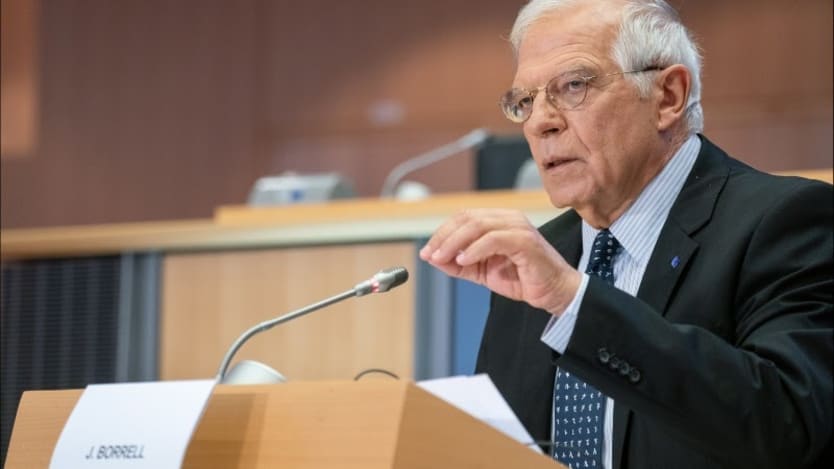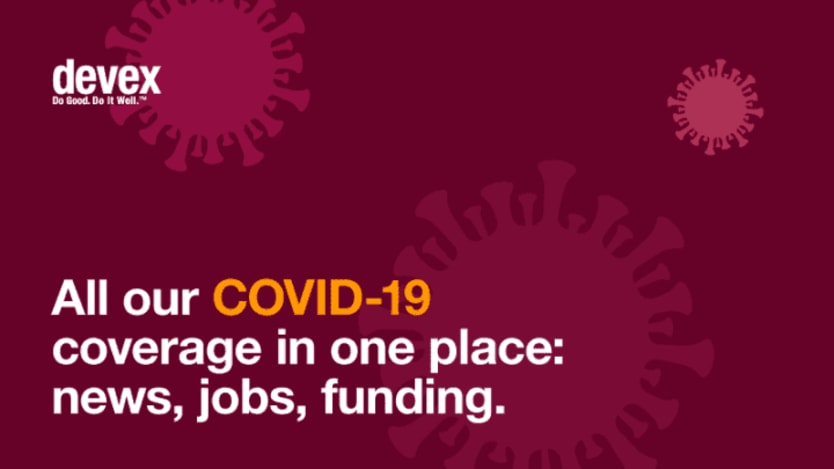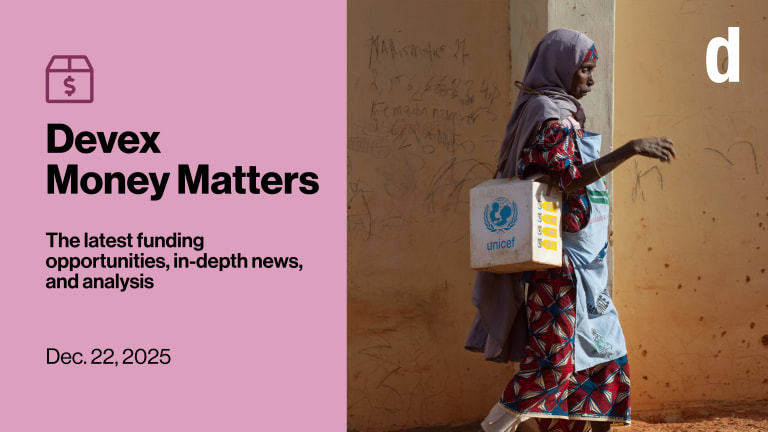
BRUSSELS — The European Commission will reallocate more than €15.6 billion ($16.9 billion) to tackle COVID-19 outside the European Union, with the bloc’s foreign affairs chief vowing that no country will be worse off as a result.
“Without visibility of EU action, our ambitions as a global player of solidarity in times of need will not be fulfilled.”
— Tomas Tobé, chair, European Parliament Committee on Development“Every country will receive the same amount of money,” Josep Borrell told journalists Wednesday, referring to the amounts already set for the 2014-2020 period. “Depending on the country and depending [on] the degree of implementation of the [existing] programs, the amounts reallocated are different. But adding up, every country will receive the same amount of money. No one will be losing due to this reorienting exercise.”
'The politics of generosity': Brussels aims to counter Chinese narrative on coronavirus
The EU’s response to the pandemic in Africa is becoming a test of whether its renewed focus on the continent is more than just talk.
The €15.6 billion, of which €5.2 billion came from the European Investment Bank, grew to more than €20 billion by the end of a meeting of EU development officials Wednesday, with a further €4 billion from individual EU member states and €1 billion from the European Bank for Reconstruction and Development.
Confirming the additional €5 billion, a spokesperson for the commission did not say which member states had contributed their own money or whether this would be new resources or reallocations of existing commitments. Of the €15.6 billion initially announced by the commission, €3.25 billion is to be channeled to Africa, where cases of COVID-19 this week passed 10,000, with more than 500 deaths.
The EU decision to keep its support package within current country envelopes led to some striking results, however. A country-by-country breakdown of the commission announcement, obtained by Devex, shows €8 million going to the Democratic Republic of the Congo, €19 million to Togo, and €17 million to Syria but €322 million to Tunisia and €476 million to Morocco.
Borrell told journalists that “the aim is to help the most vulnerable countries.” However, Ghana, which is not a priority country in the U.N.’s global coronavirus response plan, will receive €92 million under the EU response. That is substantially more than the amounts for countries that are on the U.N. list, such as Nigeria at €51 million, Somalia at €27 million, and Cameroon at €11 million.
“We are working within previous allocations for partner countries and the margins we have, given that we are at the end of the current [2014-2020 budget],” the commission spokesperson said.
Asked why the bloc had not published the country allocations Wednesday, the spokesperson said: “First we wanted to give the overall picture, and very shortly we will make available the country figures. The EU is extremely transparent about what it does.”
Reactions to the EU package were mixed. Oxfam EU, the ONE Campaign, Caritas Europa, and UNICEF said it was a good start, though many urged more ambitious, fresh funding.
Tomas Tobé, chair of the European Parliament’s development committee, called for EU communication efforts to be stepped up, telling Devex: “The European flag must be everywhere in its response. Without visibility of EU action, our ambitions as a global player of solidarity in times of need will not be fulfilled.”
Tanya Cox, director of NGO confederation CONCORD, warned that the EU's approach “should not be guided by whether or not it is in the EU's ‘strategic interests.’”
There are growing calls for wealthy nations to provide debt relief to help low-income states weather the crisis. The civil society network Eurodad argued that this could free up $50.4 billion of existing money to fight the impacts of the pandemic in 2020 and 2021.
Borrell said member states did not discuss debt relief at their meeting Wednesday, though he said: “We, the European Union, and member states, are supportive of a global coordinated response to the joint appeal by the International Monetary Fund and World Bank on a debt moratorium for the poorest countries with concessional loans from the International Development Association to ease the debt burden from bilateral official creditors.”
Visit our dedicated COVID-19 page for news, job opportunities, and funding insights.

Search for articles
Most Read
- 1
- 2
- 3
- 4
- 5








